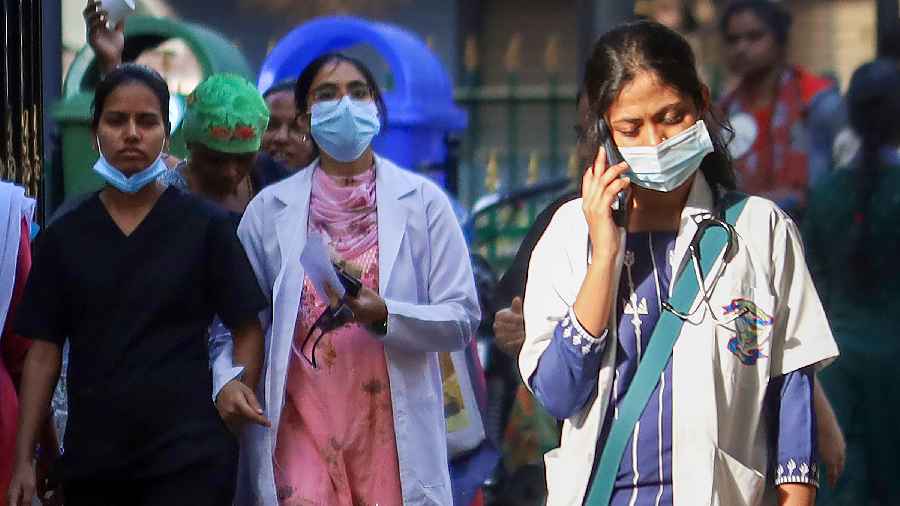As India confirmed its first two deaths due to the H3N2 influenza virus on Friday, experts called for increased monitoring and precaution measures but also reassured that there is no need to panic yet.
In Karnataka, 82-year-old Hire Gowda. a diabetic who suffered from hypertension, died due to the H3N2 seasonal influenza subtype on March 1. Another death, that of a 56-year-old lung cancer patient, was reported from Haryana.
From January 2 to March 5, 451 cases of the H3N2 have been reported in the country, according to the data shared by the ministry. It also said it is keeping a close watch on the situation and cases are expected to decline from month end.
H3N2 is a non-human influenza virus that normally circulates in pigs and that has infected humans, according to the US Centre for Disease Control and Prevention (CDC). Symptoms are similar to those of seasonal flu viruses and can include fever and respiratory symptoms such as cough and runny nose, and possibly other symptoms, including body ache, nausea, vomiting or diarrhoea.
As concerns mounted and some people wondered whether this could possibly turn out to be another Covid, pulmonologist Anurag Agrawal said he doesn’t expect to see a massive wave.
"Admission to hospital has not been very common and only about 5 per cent cases have been reported to be hospitalised," added Tarun Sahani, senior consultant, internal medicine, Apollo Hospitals.
While there is no need to panic yet, Sahani said it is advisable to take precautions similar to those taken during Covid times.
"... if most of the infected people recover albeit slow, it should be fine," virologist Upasana Ray, alumni member of Indian National Young Academy of Science (INYAS) and member of Global Young Academy (GYA), told PTI.
She noted that lockdowns and extensive use of masks for extended periods of time helped control transmission of more virulent versions of the virus, but also prevented good exposure of regular seasonal respiratory viruses.
"Due to at least two years of elaborate, expansive use of masks, we might have lost part of our immunity against the versions of these other respiratory viruses that are now getting transmitted," Ray argued.
According to Agrawal, H3N2 outbreaks can "indeed cause death" and are more severe than regular flu.
"Since there is general immunity to flu and vaccines exist, I wouldn’t expect to see a massive wave but yes, all outbreaks and deaths are of some concern," Agrawal, the dean of the Trivedi School of Biosciences at Ashoka University, told PTI.
Sahani noted that India is witnessing a huge spike in H3N2 cases since the start of 2023.
"The incidence is two to three times higher than usually seen at this time of the year. This virus is known to be a subtype of Influenza A virus which is common at this time of the year," Sahani told PTI.
Though the Covid pandemic seems to be ending, the spate of respiratory illnesses continues among adults with a significant number being infected with influenza viruses such as H3N2, adenovirus, and H1N1.
According to the latest data available on IDSP-IHIP (Integrated Health Information Platform), a total of 3,038 laboratory confirmed cases of various subtypes of Influenza including H3N2 have been reported till March 9 by the states.
This includes 1,245 cases in January, 1,307 in February and 486 cases in March till 9th, it said.
The Union Health Ministry is keeping a close watch on the seasonal influenza situation in various states/UTs through the Integrated Disease Surveillance Programme (IDSP) network on a real-time basis.
Agrawal said flu surveillance is a known important part of public health.
"In coming times we will have better combined respiratory virus surveillance," Agrawal, the former director of the CSIR-Institute of Genomics and Integrative Biology noted.
Ray agreed, saying disease monitoring is urgently needed to address the situation.
Except for the headline, this story has not been edited by The Telegraph Online staff and has been published from a syndicated feed.











